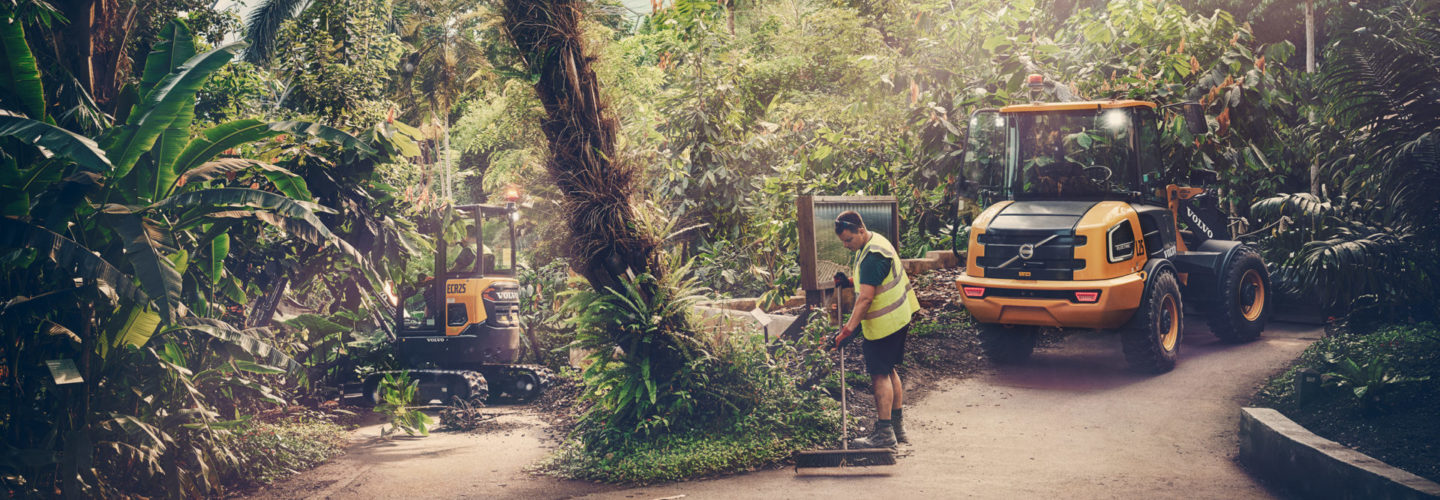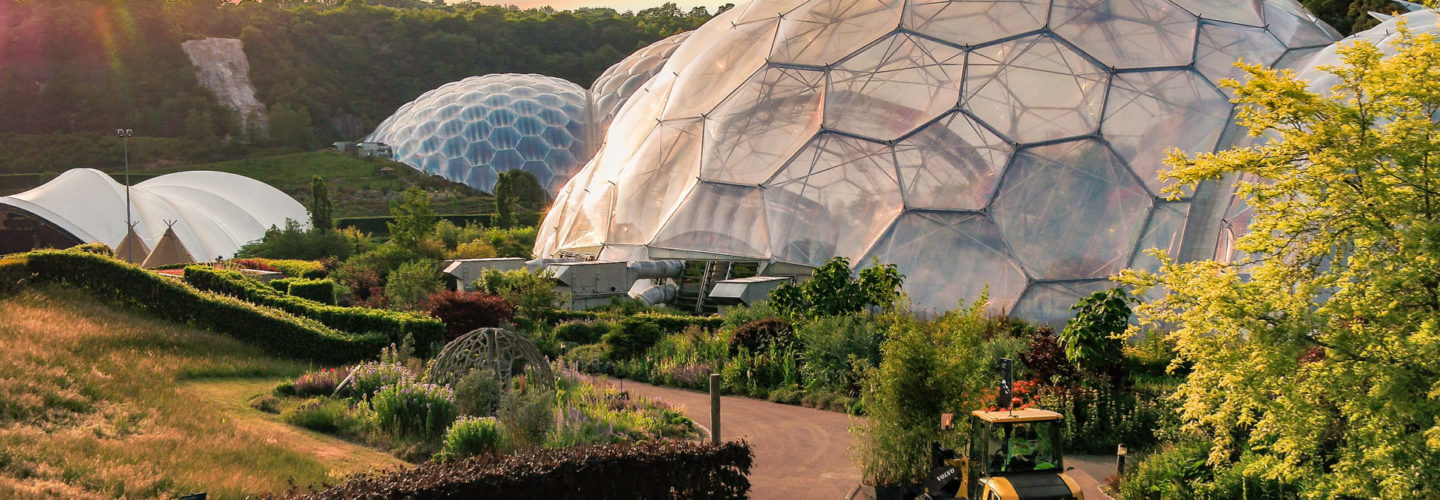A disused clay mine in what was once a barren landscape in the heart of south-west UK may be an unlikely base for the world’s largest indoor rainforest…. and equally unusual, for now, is the use of electric construction machines to maintain it.
Home to stunning covered biomes that replicate the natural worlds of the Amazon and the Mediterranean, the Eden Project in Cornwall, UK is a testament to what can be achieved by working with nature and not against it. So it made an ideal location to show the power of electric construction solutions in eradicating emissions across landscaping applications.
A three-month project with Volvo Construction Equipment (Volvo CE), which saw the zero-emission ECR25 Electric compact excavator and the L25 Electric compact wheel loader work across a variety of applications inside the famous biomes and a new nursery, has seen the project save three tons of CO2 and proved the potential for electromobility to transform the sector.
When it comes to influencing societal change – and in this case a move towards widespread industrial decarbonization – collaboration is needed. And there is no better platform to accelerate change in the landscaping sector than by showcasing sustainable action in a globally renowned site like Eden, one that has played host to Her Majesty Queen Elizabeth II, G7 world leaders and the Olympic torch.
Sowing the seeds for electric tourism
Not only is the site at the forefront of environmental care, but it brings its message of positive transformation to over 600,000 visitors a year, of all ages and from around the world. It engages everyone from tourists to school and university students in this important topic, and even offers the opportunity to study for a degree in a range of sustainability and horticultural subjects.
As such, the Eden Project has strong sustainability ambitions, having reduced carbon emissions by 35% from 2012 to 2020 and committing to be a climate positive organization by 2030. Volvo CE has its own ambitions to reach net zero greenhouse gas emissions by 2040, a decade earlier than other industry players and a goal that has been validated by the Science Based Targets initiative.
Mats Bredborg, Head of Customer Cluster Utility, says: “Collaborating with other like-minded organizations like the Eden Project is an essential part of accelerating the transition to electric equipment. We have zero-emission solutions that are reducing our industry’s carbon footprint across sectors – and we need partners on this journey to put these solutions into action. With its commitment to working with nature in diverse ways, including reducing energy use, making soil from recycled waste, buying locally, driving electric vehicles and supporting responsible global trade, Eden is a natural choice for landscaping.”
Two electric machines from Volvo CE proved versatile, together with a variety of attachments, in helping construct a 10,000 sq meter garden nursery with outdoor landscaping and carrying out repair, maintenance and material handling tasks across the site and inside the new nursery and biomes.
Delivering the same performance as their diesel equivalents, the ECR25 Electric and L25 Electric together achieved a total CO2 saving of three tons over the three-month period, saving nearly 2,000 kWh of energy. In addition, operators were impressed with the machines’ ability to work smoothly and respond quickly in a highly sensitive environment, protecting both the delicate plant life and of course the wellbeing of the public, with no diesel fumes and near silence.
Maintaining the balance of nature
David Gorman, Living Landscapes Educator at Eden Project, said: “Having no emissions and a lack of noise has meant being able to work while having the public in. Working in a closed environment like the rainforest, it’s so important to protect the ecosystem and to make sure we haven’t got any emissions. And with a little bit of pre-planning, we could efficiently use these machines throughout the day.”
The machines were used for the morning period, requiring a quick power up using the fast-charger over a one-hour break, and were then ready to work again in the afternoon. The Eden Project has ready availability of single and three-phase power outlets across its entire site, making it easier to power not only the two electric machines, but also a number of battery electric gardening tools that landscapers use in tending the gardens. There is also electric vehicle transport provided by Volvo Cars for employees across the roughly 30-acre site.
The project this Spring has been instrumental in proving the power of electromobility to transform sectors as diverse as landscaping – reducing emissions while maintaining the high productivity and performance required. While demonstrating a smooth and reliable charging process and these proven cost benefits, Volvo CE will continue to lead the way with its trusted and evolving range of electric and charging solutions.





